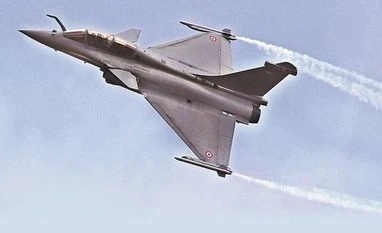Sitharaman claims that her ministry has not yet been informed about which IOP Dassault has chosen for discharging Rafale offsets. The August 5, 2015 amendment to DPP-2013 freed the Technical Offsets Evaluation Committee (TOEC) — the defence ministry body that pre-vetted and evaluated offset proposals submitted by vendors — from that responsibility.
Cost battle
- The 2007 RFP mandates the same “extras” included in Dassault’s bid of Euro 19.5 bn in 2008
- Payment to Dassault was 40% higher per aircraft than their quote
- Govt claims the 36-Rafale contract has elements beyond those in 2007 RFP
- Officials claim that inflation accounts for the Rafale's higher cost in 2016
One subscription. Two world-class reads.
Already subscribed? Log in
Subscribe to read the full story →

Smart Quarterly
₹900
3 Months
₹300/Month
Smart Essential
₹2,700
1 Year
₹225/Month
Super Saver
₹3,900
2 Years
₹162/Month
Renews automatically, cancel anytime
Here’s what’s included in our digital subscription plans
Exclusive premium stories online
Over 30 premium stories daily, handpicked by our editors


Complimentary Access to The New York Times
News, Games, Cooking, Audio, Wirecutter & The Athletic
Business Standard Epaper
Digital replica of our daily newspaper — with options to read, save, and share


Curated Newsletters
Insights on markets, finance, politics, tech, and more delivered to your inbox
Market Analysis & Investment Insights
In-depth market analysis & insights with access to The Smart Investor


Archives
Repository of articles and publications dating back to 1997
Ad-free Reading
Uninterrupted reading experience with no advertisements


Seamless Access Across All Devices
Access Business Standard across devices — mobile, tablet, or PC, via web or app
)

